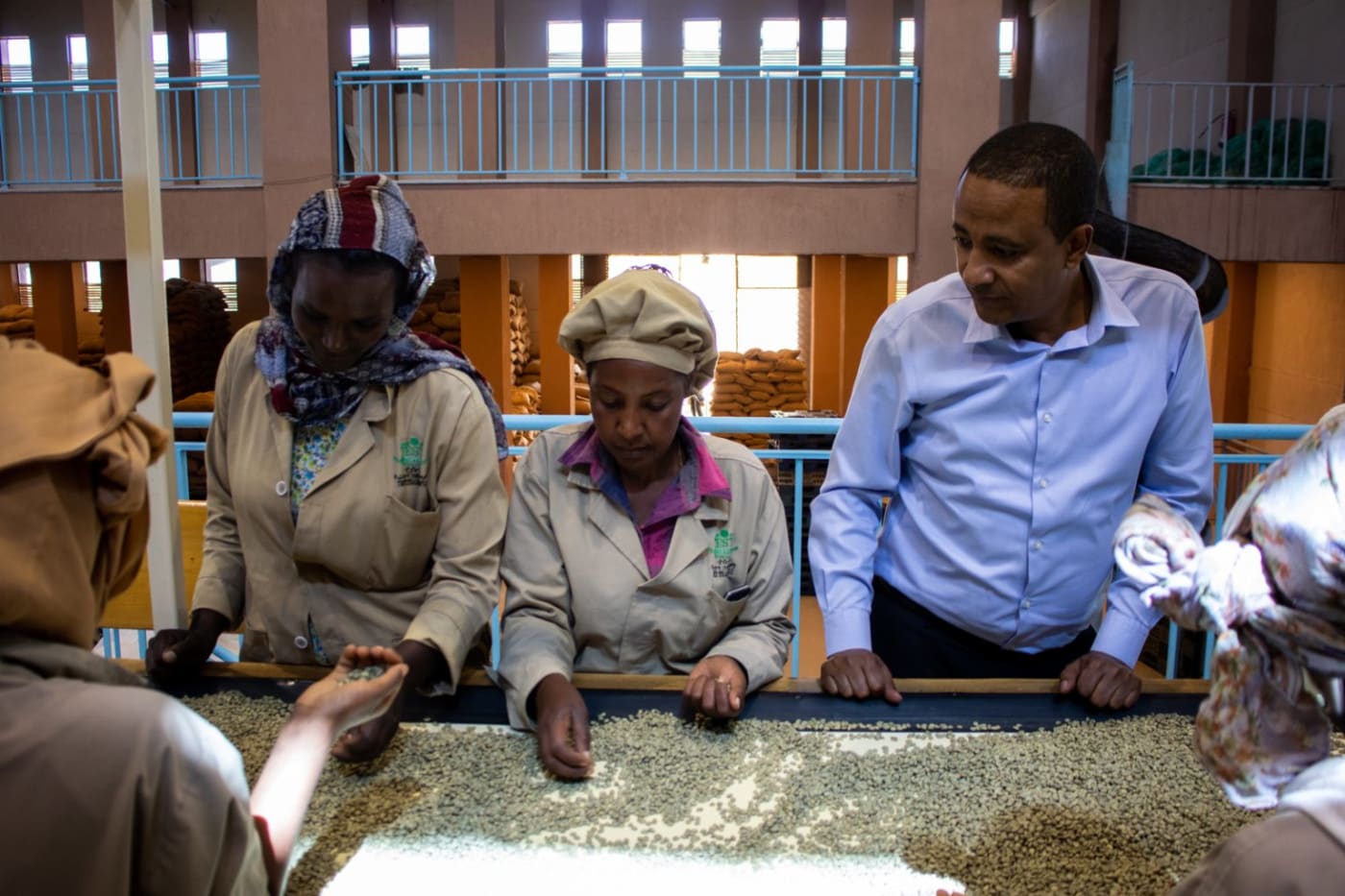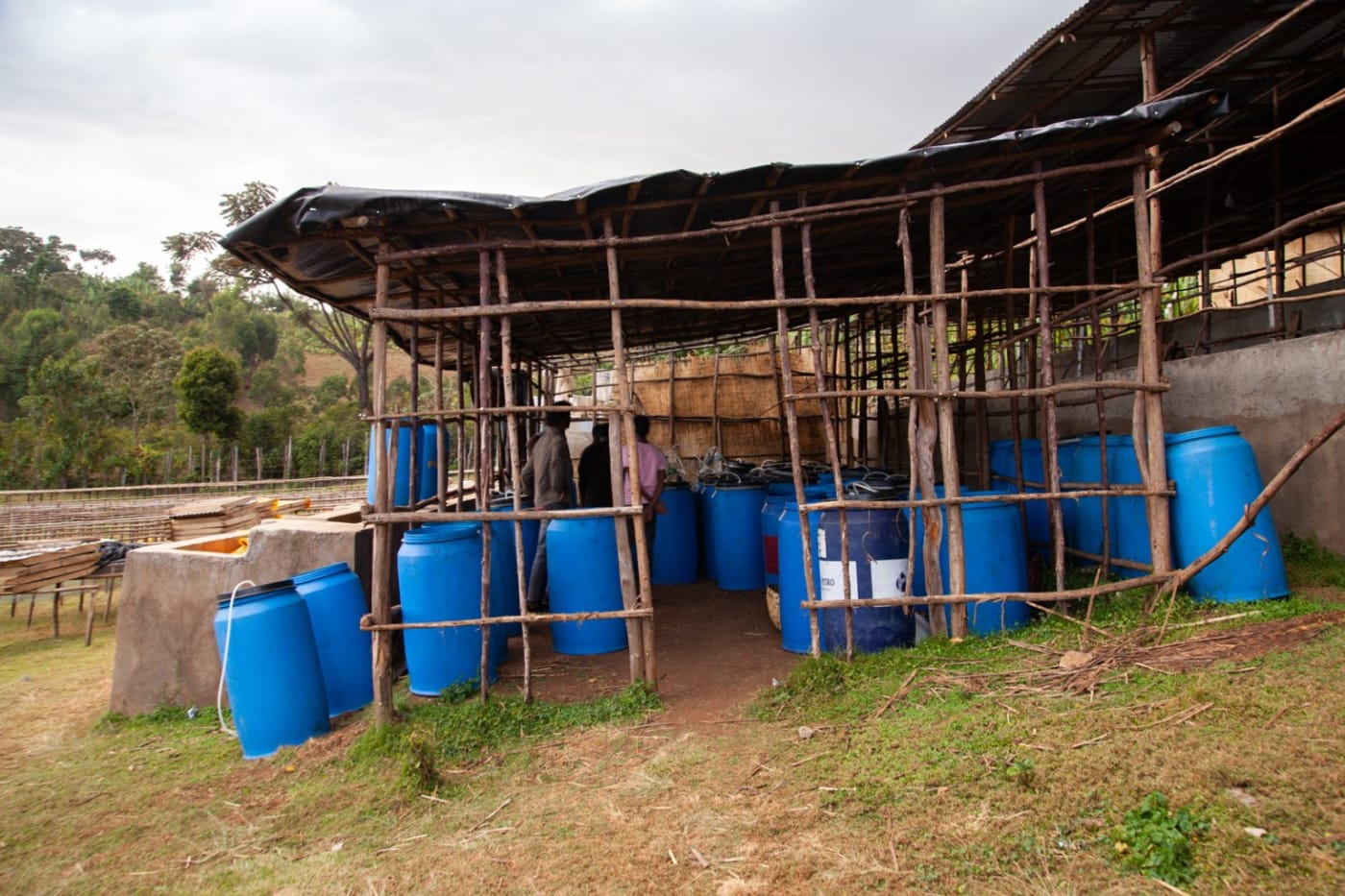Very Special
This lot features a brand new variety for us—an Ethiopian Heirloom catalogued by the Jimma Agricultural Research Centre (JARC) as 74148. In line with all its sister Ethiopian Heirlooms grown at high altitudes, it has a fruity and multi-layered flavour profile; we get so many flavours that we couldn’t even settle in our usual 3 descriptors, but 4! We forecast that different brewing methods will highlight some notes over others, so we can’t wait to brew a few and see how it goes.
If you need more than that to understand why this is in our VS category, there’s the exclusivity. We could only buy enough green coffee to supply our Brew Crew VS subscribers and maybe a few lucky retailers with what’s left.
So, to sum up, this lot is a complex, super high-quality, and exclusive coffee. Very Special!
Duwancho washing station
The washing station where this coffee was produced is located in the kebele (local village) of Duwancho, in the centre-south of Ethiopia.
Sitting at 2,250m above sea level, Duwancho produces exceptional washed, natural and special preparation lots. The site was built by Testi Coffee (a company that has produced many familiar coffees in our lineup!) in 2021 as a ‘premium’ facility for its natural advantages: high elevation, the surrounding region’s characteristics and access to fresh, clean water.

Mr Faysel, owner of Testi Coffee, at the dry mill
The producers
Most families that contribute to the site farm organically on tiny plots of land, averaging less than one hectare in size. Coffee is their main cash crop and grows alongside food crops of corn, grain and bananas under the shade of native Birbira, Wanza, and Acacia trees.
The 74148 variety
We’ll let the importers Melbourne Coffee Merchants talk a bit more about this variety, which, as we said, featured for the first time in our offerings:
“For many years, most Ethiopian coffees have been described as being a mix of cultivated and wild varieties, referred to as "heirloom varieties.” This is a term that is all-encompassing and used by many actors in the coffee industry to generally categorise Ethiopian coffee varieties that are from native forest origins. Whilst this describes many of the varieties found in Ethiopia, it is also a bit simplistic and does not acknowledge the varieties that are already locally recognised and cultivated, or those that have been specifically developed and widely distributed by the Jimma Agricultural Research Centre (JARC).
Sidama is home to many landrace varieties that were originally selected from the forest and have been propagated successfully for decades. There are five popular varieties that are named after indigenous trees in the area— Bedessa, Kudhumi, Mique, Sawe and Wolisho. There is little documentation on the history of these varieties, and it is hard to know if they represent a single plant or a wider group of varieties; however, it is widely accepted that they play a major role in the quality and floral flavour profile of the coffee from this region.
JARC varieties were developed using “mother trees” from Ethiopia’s coffee forests, and are now grown for disease and pest resistance, as well as exceptional cup profile, and are released by number. For example, 74110, 74112 and 74116 are all widely propagated in the Sidama growing region.“
This lot
This coffee lot was produced as part of Testi’s quality improvement initiative, Premium Cherry Selection (PCS). It is classified as Grade 1, the highest quality classification for Ethiopian coffees, indicating a great deal of effort has been put into selecting and grading during processing.
For this lot, carefully hand-picked coffee cherries were delivered to the Duwancho washing station, where they were carefully sorted, then pulped within 6-8 hours from picking and floated to select only the ripest and highest quality cherries.
Then, these went through a traditional Ethiopian washed method. The parchment-covered coffee is soaked in tanks of clean water from the local river Lugita, where it ferments for 48 hours. During this time, the water is replaced twice to ensure no spoilage occurs. This water also adds to the temperature stability of the fermentation, keeping it at an ambient 20.5–21.5˚C.
The beans are then dried on raised drying beds under a parabolic shade for up to 21 days, depending on weather conditions. During this time, the coffee is again sorted for defects and turned so it dries consistently. Finally, once it has reached the desired humidity, it’s rested, milled, packed and made ready for export.







